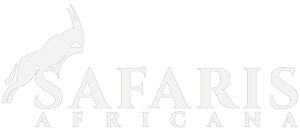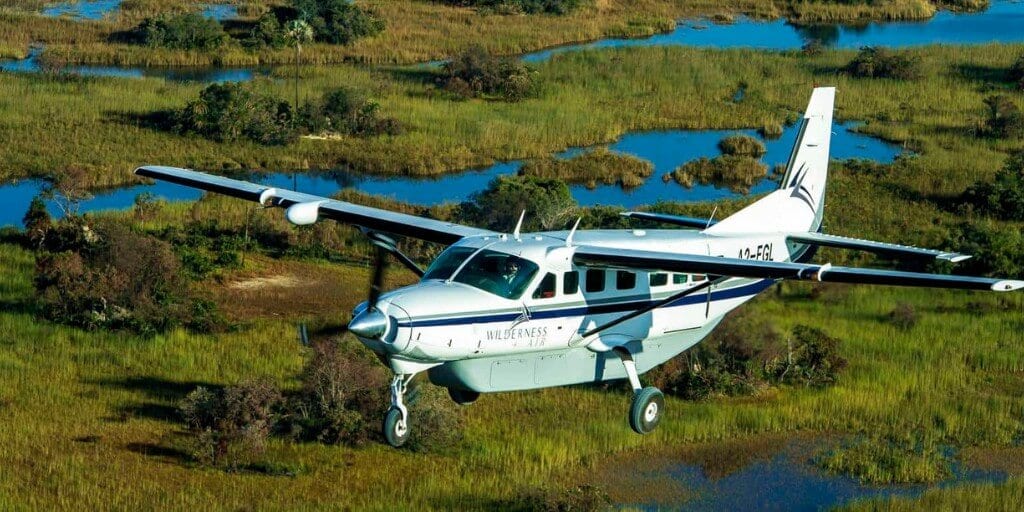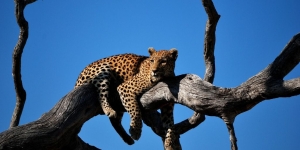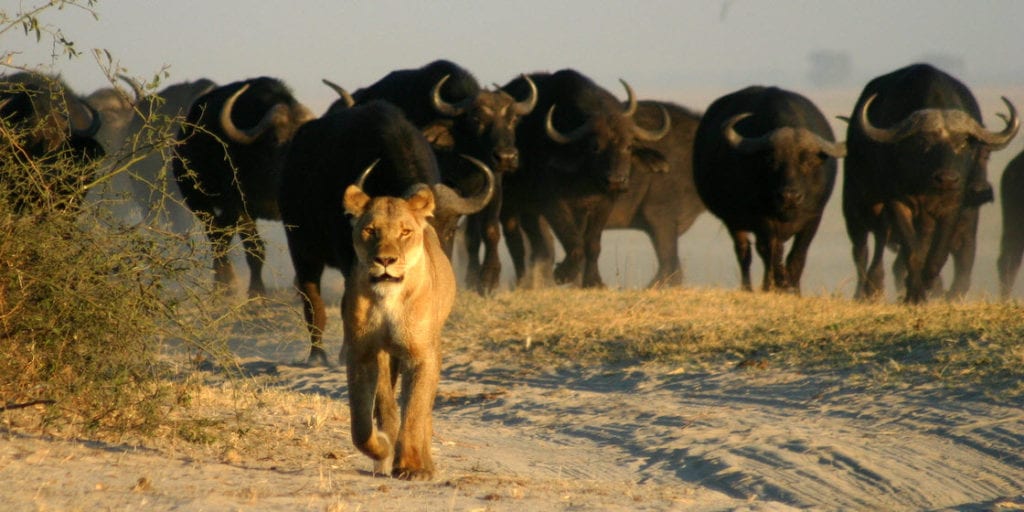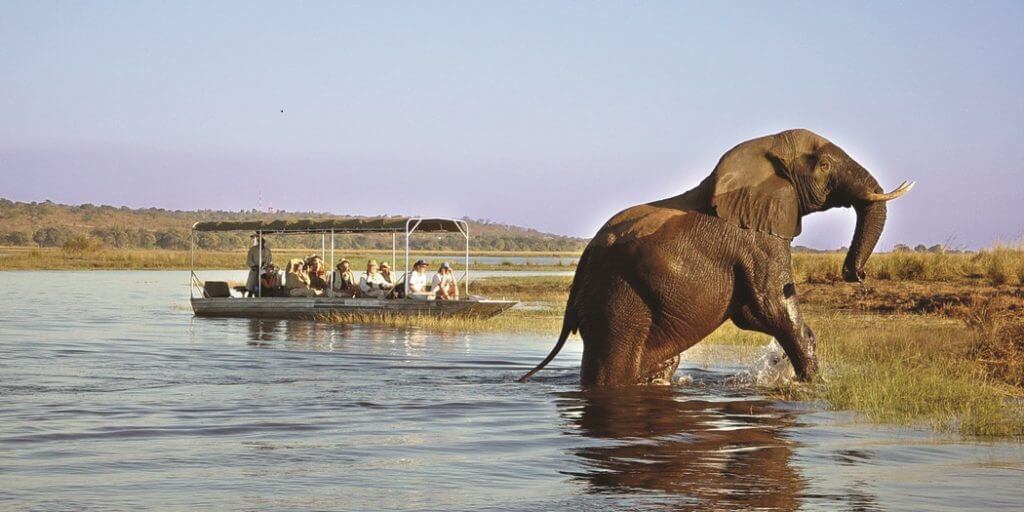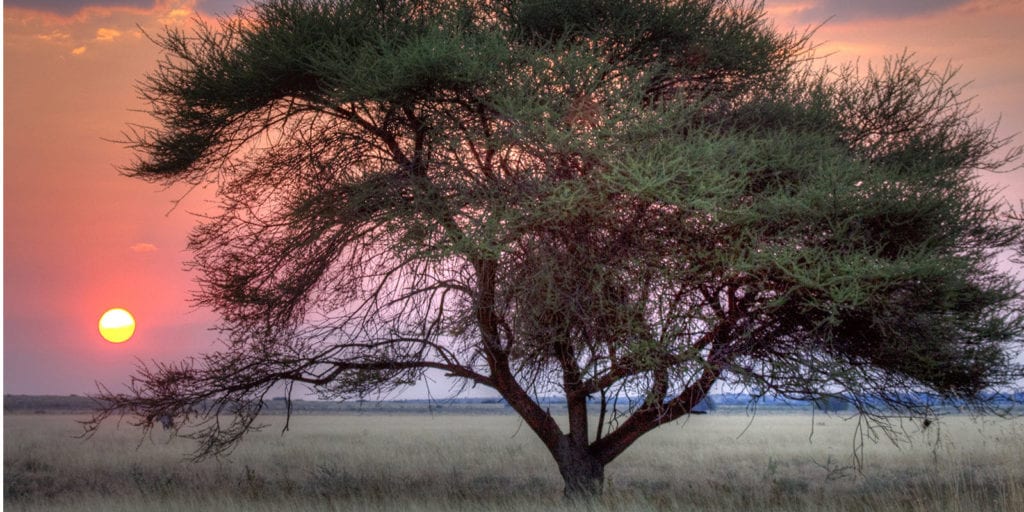Botswana safaris are truly special. The country doesn’t see as many tourists as most other countries in Southern and East Africa, but this in no way diminishes the quality of the game viewing and safari experience Botswana has to offer – and in many ways, it’s a bonus. Rural Botswana is an inhospitable place for humans, but a country that manages to support an incredible diversity and density of animals. Botswana wildlife is hands down some of the best anywhere in the world.
Botswana is a large, wild country (approximately the size of France) with a decent – but very limited – road network where only the major roads are tarmacked. This makes Botswana a safari destination for the intrepid. If you’re planning on doing an independent, self-drive safari in Botswana a high-clearance 4WD vehicle and spirit of self-reliance are essential to get the most out of your visits to the national parks. The country is easily accessed from South Africa, with the capital Gabaronne just a few hours’ drive from Johannesburg.
Self-drive safaris are a big thing in Botswana and are popular with overland tours and independent travellers alike. You’ll need a rugged 4WD to access all areas, and be confident that you’re totally self-sufficient if camping on your own in the bush. If this safari-style doesn’t appeal then browse our guide to safari companies in Botswana to speak to a professional.
Geographically Botswana is covered in scrub brush and savannah grasslands, with the occasional impressive geographic feature such as the Okavango Delta and adjoining Chobe National Park, huge salt pans, and the brutally picturesque Kalahari Desert. The country is landlocked and lies at a fairly consistent average elevation of 1,000m. The windswept and sand-based Kalahari Desert covers over 80% of the country in the south, west, and centre. To the north lies 15,000 km sq of the Okavango Delta, fed by the Okavango River and forming the northern border with Namibia. To the east lie the great salt and clay desert of the Makgadikgadi Pans and occasional deciduous forests towards the Zimbabwe border.
One of the most impressive African rivers for wildlife, Okavango River supplies year-round water to much of northern Botswana, and ends in the inland Okavango Delta, support a vast array of Southern African mammal species. These include the big five, wild dogs, hippos, hyenas, honey badgers, and a broad range of gazelles and hoofed mammals.
Each year Botswana is home to one of Africa’s largest annual migrations, featuring huge herds of wildebeest, zebra, and other wild animals as they move from their winter ranges in the Makgadikgadi plains to the summer feeding grounds of the Nxai Pan region. Not as large in scale as the East African ‘great migration‘, but there are also far fewer tourists around to take away from the experience. This lack of tourists, the sheer scale of the wilderness and the abundance of game in Botswana’s national parks come together to make Botswana a safari destination that’s hard to better, wherever you visit in Africa.
| Timezone |
GMT +2
|
|---|---|
| Health Info | |
| Visa Requirements | |
| CIA Fact Book | |
| Currency |

Useful resources
Botswana safari highlights
Okavango Delta Botswana, fly-in safari
Safaris don’t come much better or more luxurious than an all-inclusive fly-in safari deep in the Okavango Delta. Take a four-seater flight over the wetlands, wildlife spotting as you’re flown to an exclusive, out-of-the-way lodge for a few days of game drives, safari walks, and boat trips.
Big five spotting

Go big game spotting at Chobe National Park – perhaps Botswana’s most famous national park. Boat safaris are a big draw here, with a waterfront teeming with wildlife… but you’ll have to be very lucky to see all big five from a boat – game drives in a 4X4 jeep are more the order of the day.
Leopard spotting in Moremi
The east side of the Okavango Delta Moremi Game Reserve is regarded as one of the top African leopard hangouts. On the fringes of the delta where water collects in small lagoons and fills grassy floodplains, antelope (and all sorts of other wildlife) are plentiful. Perfect leopard country.
Mokoro safaris on the water
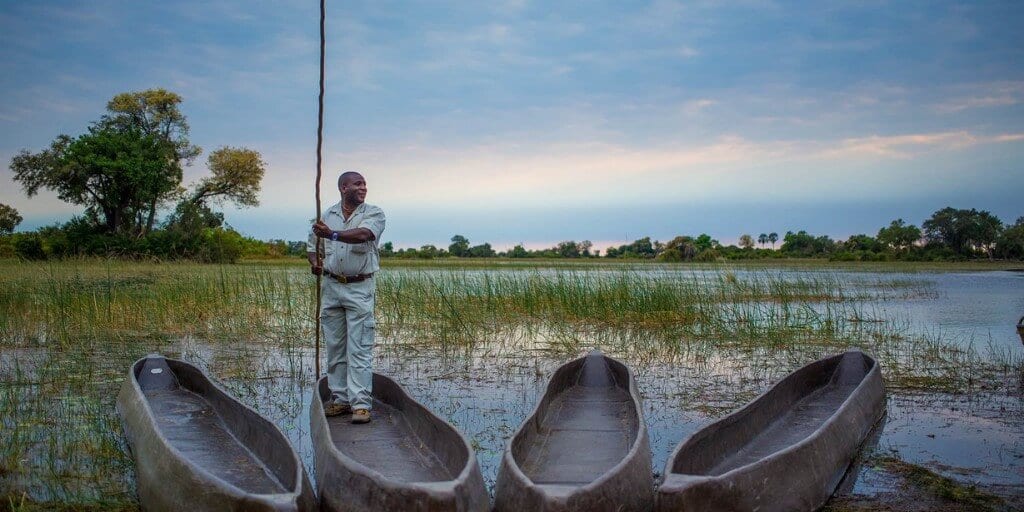
The Okavango Delta offers ample opportunities to get out on to the water for some top-class wildlife viewing. Traditional wooden mokoros are a fun and eco-friendly way to head out on a canoe safari, though propeller boats are on offer too, and can easily be combined with superb walking safaris.
Best time to safari in Botswana
May to August is the best time to organize a safari in Botswana, as during this winter season the days are cool and sunny, and the lack of water drives the wildlife to congregate around permanent water sources. At this time getting around the country is fairly straightforward, with dust rather than water being the main obstacle. During winter months wildlife spotting is easy – simply find a river or watering hole and dig in to wait for the action. Bear in mind is that July and August is school holiday time, meaning more tourists than usual, higher prices for safari accommodation and tours, and busier national parks.
October to April is summer season in Botswana but brings with it severe heat and the rains – occasionally in extreme amounts. Getting around the country by road during summer can be disrupted by flooding, as many of the secondary roads are not tarmacked. Wildlife is also more dispersed and harder to spot, hidden by lush vegetation. An exception to this is in parts of the Okavango Delta where there’s so much flooding that many islands form, trapping wildlife which can be viewed from a boat – though vegetation still causes a problem.
National parks in Botswana
All national parks in Botswana are run by the Department of Wildlife and National Parks (DWNP), based in Gaborone, who enforce a strict no driving after dark rule in the parks. (See this great article on driving in Botswana.)
Whilst not actually a national park or reserve, Botswana is renowned worldwide for the Okavango Delta region in the north of the country, providing water and supporting an incredible array of African wildlife.
Top Botswana national park picks
Moremi Game Reserve
The only part of the Okavango Delta that’s officially a national park, Moremi covers almost one-third of the delta, and is packed with wildlife. There’s no public transport so you’ll have to get yourself there, but the trade-off is fewer tourists to share the plethora of wildlife with.
Chobe National Park
Chobe National Park was Botswana’s first national park at an impressive 11,000 km sq. There’s easy access for spectacular game viewing from a boat on the Chobe river and the network of dirt and gravel roads. The Savuti area in south west Chobe is recognised as having one of the highest concentrations of wildlife in Africa.
Makagadikgadi Nzai Pan National Park
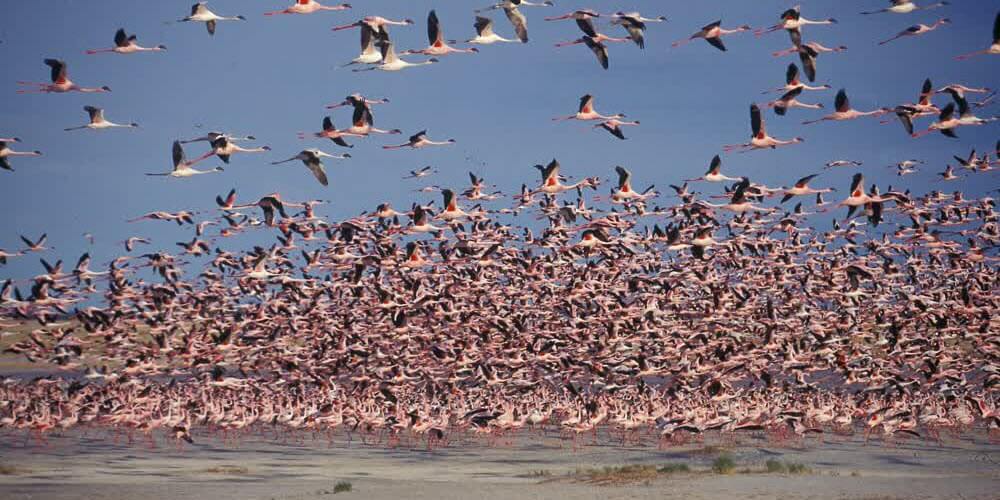
Feel the unfettered freedom of driving through the never-ending parched-white salt pans, or plan your trip for the when the rains come and bird life and herd animals abound, including one of Africa’s largest migrations.
Central Kalahari National Park
One of Africa’s largest protected area at a whopping 52,000 km sq. Braving the tough conditions of Central Kalahari National Park in your own 4WD may reward you with viewings of hyena packs and prides of lions in the unforgiving desert.
- Central Kalahari Game Reserve
- Chobe National Park
- Moremi Game Reserve
- Makgadikgadu National Park
- Nxai Pan National Park
- Okavango Delta
Botswana safari resources
Botswana safari companies
Though Botswana has a relatively low number of inbound tourists each year, a very high proportion of these come for the wildlife. Around the capital Gabarone and also Maun – the de-facto capital of the Okavango Delta – there are numerous safari tour companies to suit all budgets. Check out our reviews of safari tour companies in Botswana.
Botswana safari lodges
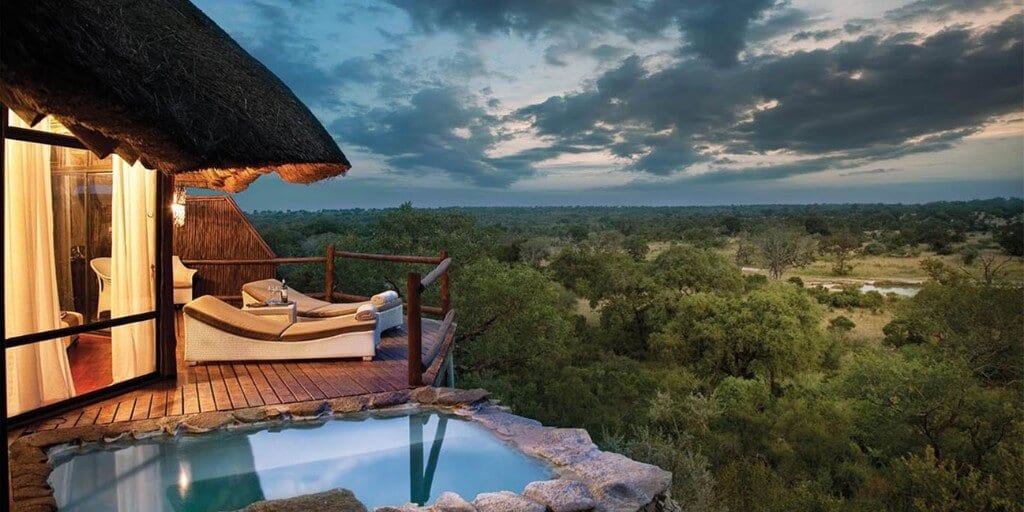
Botswana has a focus on low-impact, high-end safaris, and the accommodation on offer reflects this. Luxury safari lodges are the primary accommodation in Botswana, though there are also mid-range accommodation in the tourist enclaves of Maun and Gabarone. If you have your own tent most safari lodges have an area where you can pitch up for the night, along with decent washing and BBQ facilities as standard. Search and book safari lodges in Botswana, or find all accommodation in Botswana below.
